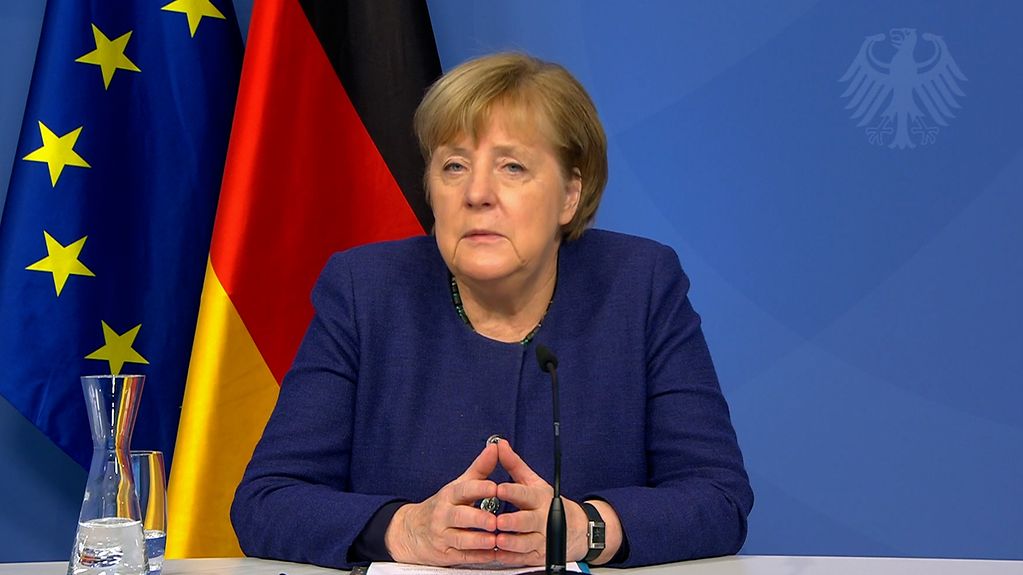WHO science summit
The pandemic demonstrated once again the outstanding importance of international networking in health research. At the WHO science summit, Federal Chancellor Merkel called for even more cooperation so that future generations can respond more swiftly.
2 min reading time

Federal Chancellor Merkel called for even more cooperation so that future generations can respond more swiftly.
Photo: Presse- und Informationsamt der Bundesregierung
Federal Chancellor Angela Merkel stressed the importance of international cooperation so as to be able to “successfully counter the horrors of pandemics”. The Federal Chancellor essentially sees three points as being crucial in establishing the conditions for current and future generations to be able to respond more quickly and effectively to health threats:
- “Firstly, we should work to ensure more cooperation and networking: in science, in politics and between science and politics.”
- “Secondly, we need structures that operate efficiently. Here it is vital to put the funding of the World Health Organisation on a firm footing.”
- "Thirdly, we must continue to consolidate trust – something that is indispensable when it comes to successful cooperation.”
International networks
The Federal Chancellor thanked all the teams of experts around the world for sharing their knowledge at such an incredible speed to decipher the SARS COV-2 virus. The pandemic demonstrated once again the outstanding importance of international networking in health research: developing safe and effective vaccines in less than a year was a milestone in pandemic response. The Federal Chancellor is particularly pleased that experts from Germany were involved in these efforts, too.
Financial support
Scientists also need clear lines of communication with policymakers, and adequate research funding has to be ensured – both nationally and internationally. Unfortunately not all countries are able to maintain the kind of research capacity that would ideally be necessary.
This bears out the importance of the ACT global initiative and its vaccine facility COVAX: it ensured financial support was provided for research into vaccines, therapeutics and diagnostics while also making vaccines available to poorer countries.
The G20 states have also committed to significantly improving access to vaccines, therapeutics and diagnostics on a worldwide basis. This will enable the WHO-recommended target to be met of vaccinating at least 40 percent of the population in all countries by the end of 2021 and at least 70 percent by mid-2022.
WHO Hub inaugurated in Berlin
There is a need for suitable platforms to enable dialogue between scientists and policymakers – as well as within the scientific community itself, of course – both at national and international level. This is the only way to identify health threats faster and more effectively and create a much-needed foundation for policy decision-making.
The recently established WHO Hub for Pandemic and Epidemic Intelligence in Berlin fulfils this role in that it collects, collates and evaluates data on a global basis.